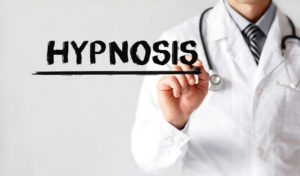When suffering from an alcohol addiction, many claim to be willing to do anything to break the habit. But what about hypnosis to stop drinking? Although many don’t consider it their first go-to, it can in fact help.
More than 15 million people in the United States are currently unable to stop drinking due to developed dependency. Although more than 50% are successful after receiving professional rehab care, the other half continue to relapse.
Hypnosis is An Effective Addition to Rehab Treatment
Except under rare circumstances, individuals who drink on occasion don’t do so with the intention of developing addiction. Yet it’s because of the way alcohol affects the brain that substantial drinking develops into tolerance. This can become a dependency, followed by addiction and abuse.

Because of how the brain reacts to alcohol, the use of hypnosis to stop drinking is widely encouraged as part of rehab. Many studies have confirmed the benefits of hypnosis, and many recovering alcoholics can testify to its success. Using hypnosis to stop drinking provides added support to those in rehab, breaking the cycle of abuse. Even more valuable, hypnosis has also been known to significantly deter future relapse, making this treatment even more sought out.
Alcohol is an Addictive Substance
For adults 26 years old and older, alcoholism is the most common addiction in the nation. However, because this particular illness takes time to develop, many lack awareness while the process is occurring. Alcohol obstructs the function of the central nervous system by acting as a depressant. By over utilizing a neurotransmitter, specifically gamma-aminobutyric acid (GABA), the brain itself actually functions more slowly. Slowing of the brain, along with the irregular distribution of endorphins, makes alcohol addiction havoc for the brain to endure.
Understanding GABA’s Effects on Excessive Drinking
When a person is under the influence of alcohol, their inhibitions are depressed. When consciousness of a person’s actions and behaviors are lowered by alcohol consumption, GABA is responsible. GABA, the neurotransmitter, receives signals promoting a person’s function and performance.
When GABA is performing normally, it delivers messages and signals to the brain for health and safety. However, when someone is under the influence, signals often don’t end up making it to the proper destination to deliver the message. GABA basically scrambles around directionless, lacking a destination, and among the confusion messages are lost. Benzodiazepines also have this same effect, and are likewise highly addictive.
This is why GABA is responsible for the incoordination associated with more than moderate alcohol consumption and addictions. Typically, motor function is the first to be affected. Some behaviors that are often the most noticeable include:
- Slurring of speech
- Difficulty walking
- Loss of memory
- Inability to communicate effectively
- Loss of consciousness
These unfortunate occurrences are the likely signals that someone has had too much to drink. However, they actually don’t accurately depict an alcohol addiction. This is because the brain can adapt.
The Brain of an Alcoholic Adapts to Dysfunction
The brain of an alcoholic can modify its function to avoid experiencing, or at least displaying, drunken behaviors. Being the amazing organ that it is, it can actually adapt for survival amidst many circumstances. In the case of prolonged exposure to alcohol consumption, the brain will reject the alterations of GABA, including inhibition.
It does this by using glutamine, another neurotransmitter. Essentially, GABA and glutamine are opposites. Glutamine is produced to function as more of a stimulating agent to enhance delivery of messages to the brain. So to counteract the depressant effects of GABA when a person is drunk, the brain makes more glutamine for stimulation. This creates what sounds like the perfect balance; however, this is where the short-term problems stop and long-term problems start.
GABA + Glutamine = Trouble
When levels of GABA and glutamine balance out enough to prevent losing inhibitions caused by alcohol, this is considered tolerance. Tolerance requires one to drink more alcohol to feel the desired effects. While nothing has changed about how alcohol works or what it does to the body, drunken symptoms are masked. The adaptation process itself is functioning perfectly, and so is the alcohol. This combination simply causes the individual to exhibit less signs of traditional intoxication.
Along with showing less signs of intoxication, there will also be less euphoria. This is what prompts a person to ingest more alcohol, more quickly, and in one sitting. By upping the alcohol intake significantly to the next level, the chances of feeling drunk increase periodically. By implementing hypnosis to stop drinking, the act of ingesting alcohol can be deterred.
By forcing glutamine to increase to counteract the GABA, the brain is in overdrive. Then because of this tolerance is increased, more alcohol is needed to get to the same degree of drunk. Unfortunately now, the next move belongs to the brain’s neurotransmitter glutamine again, which will increase higher. It’s the perfect cycle to make up a recipe of disaster and substance abuse.
Alcohol Abuse, Tolerance, Dependency and Addiction
The higher the tolerance, the more a person will drink or be able to drink in one sitting without falling over. Being able to handle more alcohol only leads to the brain having to adapt further. Once this happens, it becomes more of an autopilot response.
By continuing to drink on a regular schedule, the brain has learned to have a high supply of glutamine. Yet, when a person who is used to ingesting alcohol daily takes a break, more issues can arise. This is when functioning without alcohol is more uncomfortable than just giving in and having a drink to “keep it even.”
Now, this is considered dependency. It’s at this point that detoxing from alcoholism can be dangerous. Fortunately, inpatient rehab can help to get through the difficult times, helping a person to get and stay sober. Many times, an individual will have developed a routine relationship with the act of drinking. Inpatient, or residential, programs remove the individual away from any physical temptation of alcohol, while the healing process takes place. This is where hypnosis comes in to aid. Using hypnosis to stop drinking is an innovative program, to both help manage symptoms, and break the habitual cycle.
The Effects of Excess Glutamine
Once tolerance has developed into dependency, an alcoholic is trapped in the cycle. The excess glutamine that has built up in the system to combat GABA can have some serious effects during withdrawal. These periods of time when the habitual drinker puts time in between the last drink and the next drink is a critical time.
Essentially, high levels of glutamine contribute to withdrawal, which is what makes alcohol detox so dangerous. Some of the effects of alcohol withdrawal when hypnosis to stop drinking is often valuable include:
- Stomach pain, including nausea and vomiting
- Gastrointestinal upset, including constipation, gas or diarrhea
- Bloating and swelling, especially in the hands, arms, legs and feet
- Joint pain and muscle spasms, often pain in the back and shoulders
- Fatigue and exhaustion
- Headache, confusion or dizziness
- Itching sensation sometimes accompanied by a rash
- Dry mouth and throat
- Flu-like symptoms such as runny nose, increased sweating and elevated temperature
- Tremors
- Hallucinations
- Convulsions
- Seizures
When there is an overload of unutilized glutamine, the sensitive brain receptors become easily overwhelmed. Unfortunately, this overstimulation can last a significant amount of time, usually worsening before improving. Withdrawal symptoms will likely persist for an extended amount of time even after considerable time has passed. These symptoms can become dangerous and life-threatening, and individuals should not attempt this alone. This is what addiction is, and this is why it’s so hard to quit.
Using Hypnosis for Alcohol Addiction
Because alcohol becomes so intertwined into the physical, emotional, and social areas of a person’s life, major corrections are necessary. Hypnosis to stop drinking is a valuable skill that can reinforce these changes. Studies performed to evaluate the success rates show a 77% rate of success after one year. This method takes time and practice; however, with such incredible rates of performance, it’s worth integrating into treatment.
One of the most valuable aspects of using hypnosis to stop drinking is that it can be applied to any problem area. Individuals suffering from long-term alcoholism benefit from using hypnosis to stop drinking cravings, better managing withdrawal.
What is Hypnosis and How Can it Help Someone Stop Drinking?
Hypnosis is defined as an experience of consciousness that has been intentionally altered. Typically, it’s the self-induction into a trance state where deep-rooted changes can be encouraged. For those who have never experienced hypnosis, it can be difficult to understand or explain. However, using hypnosis to stop drinking can be measured by more than just the rates of success.
Shifting consciousness is not the same as a daydream, prayer or meditation, although it is within the same realm of persistence. Fortunately, functional magnetic resonance imaging (fMRI) and electroencephalogram (EEG) devices can measure effectiveness of one’s practice.
Capturing Images of The Brain Under Hypnosis
To ensure that someone performing self-hypnosis can quit drinking properly, live evaluations can be viewed, thanks to technology. By means of an electroencephalogram (EEG), medical professionals are able to monitor brain waves and function of the brain. By measuring these electrical hotspots while working with hypnosis to stop drinking, efficiency and technique can be evaluated.
When combined with the use of an fMRI, EEG images help formulate a picture of how addiction affects brain function. Then, while practicing self-hypnosis to stop drinking is taking place, compare the images. This targets the responses that will need extra focus while working toward sobriety, expediting the process.
Self-Hypnosis Can Be Practiced Regularly
When in the rehab setting, a lot of focus is placed on the aftercare program. It’s important to ensure that lessons and practices of each individual can become a part of their outside routine. In addition to 12-step programs to follow up rehab, hypnosis reinforces the ability to resist urges.
Self-hypnosis is the practice of putting oneself into a hypnotic trance. Because a practitioner cannot be taken home to perform hypnosis to stop drinking, self-hypnosis is the best alternative. This allows each individual to revisit this routine when in need. As a part of an aftercare program, once hypnosis is successfully achievable, the results are life changing.
Is Self-Hypnosis a Simple Skill to Learn?
Although it may seem like an easy process, using hypnosis to stop drinking does take practice. Some people will find it easy to guide themselves into a state of trance. Others may need to repeat the process to perfect it. However, the more often it’s performed, the more effective it will become and the longer it will last. This is a similar stance that is taken in cognitive behavioral therapy (CBT), yet here the intervention occurs during trance.
That said, often recovering alcohol addicts find it helpful to rely on an audio track for guidance. The audio will guide each person through the process, using suggestive tones and cues during each step. Essentially, this is the easiest and most effective way to accomplish self-hypnosis to stop drinking.
Once the individual has entered the state of trance, their unconscious mind will do all of the work. Being hyper-susceptible to suggestions, the brain can take the information and adapt to that, instead of addictive patterns. Included on the audio-assisted track, the hypnosis program to stop drinking makes suggestions and enforcements. These new rules that the brain adapts to will back up certain targeted therapies, such as CBT. In both CBT and hypnosis to stop drinking, correcting addictive associations and making new ones, is important to recovery.
Experiencing a State of Trance in Hypnosis
When in a state of trance, it is as if the outside world has shut down around you. It is more than simply just closing your eyes and thinking. In fact, it is the opposite of therapy.
During therapy, there is typically a steady flow of communication, in order to get the root of addiction. During individual therapy at rehab, it will be necessary to open up and develop trust with a medical professional. For some, this can be a difficult hurdle to overcome. However, reflection is needed for change and can provide insight into deepening the practice of using hypnosis to stop drinking.
Hypnosis and trance are much more personal yet self-reliant at the same time. Essentially, it’s a self-induced sensory deprivation to place more intense focus within. This internal experience typically encompases thoughts, feelings, self projections and sensations of consciousness. Yet at the same time it’s a quiet and peaceful time that belongs to you, relieving any anxiety.
What’s uncovered while in trance can project onto your consciousness filling the areas that were once controlled by addiction. This leaves no room for unhealthy habits and behaviors. Using hypnosis to stop drinking is self-derived intentions that aim toward long lasting and simple sobriety.
Three Elements of Hypnosis
There are three elements of hypnosis therapy to be successful for addiction. The ability to achieve success in each area contributes to the overall success. The three components that make up hypnosis are:
- Absorption
- Disassociation
- Suggestibility
Much like breaking down different areas of addiction treatment, it may take time to transition from one to the next. Hypnosis to stop drinking will take all three to be effective, however, the results are worth the value of the outcome. With a better understanding of each element, achieving a state of trance enhances addiction treatment and recovery.
Absorption
This first element is being able to maintain a deep and complete internal focus. By blocking out additional sensory input, you become immersed in concentration. This is why it’s important to have a clear understanding of addiction and recovery goals, and what path to take to get there.
This may also be a good time to fully understand any other types of illness you may be suffering from. Individuals with anxiety, depression or post-traumatic stress disorder (PTSD), which are often associated with alcoholism could find this particularly enjoyable. By placing intense focus on one specific goal or image, hypnosis to stop drinking practices becomes a safe space within.
Regardless of what you’re thinking, imagining or feeling, total attention is key. Individuals report losing track of time or loss of the concept of time while in trance. Essentially leaving all other troubles behind, trance is the beginning phase to use hypnosis to stop drinking.
Disassociation
Perhaps the most important element of using hypnosis to stop drinking is dissociation. This is the practice of separating thoughts and behaviors that contribute to addictive actions. When a person is under hypnosis to stop drinking, the main focus will be to detach from the urges to drink. Any cravings or thoughts of active alcohol abuse will need to be temporarily out of the mind, to avoid distraction.
This isn’t always easy, but it’s why guided hypnosis to stop drinking works best. Moving from one stage to the next often flows as long as the trance isn’t broken.
In trance, you leave every other obligation that life brings along with it and set them aside to focus on alcoholism specifically. Or in this case, achieving the second element of hypnosis. The basic idea is to closely evaluate why triggers affect you the way they do. With this realization, breaking the connection is much easier at its root foundation.
Suggestibility
Once able to surpass both absorption and dissociation, the element of suggestibility is where the mental change occurs. Deep in trance, your brain is more likely to adapt to the new prompts being imposed upon it. Once again, the brain will be able to adapt.
This is a vulnerable place in the mind. Using the uncovered memories or events that have arisen within the disassociation stage, suggested sober actions can take the place of destructive ones. In fact, you may have had a forgotten experience that had been encouraging addiction, with an unconscious desire to suppress it. This is getting down to the roots of an alcohol addiction, no matter when it started.
Not only will you be able to experience a relaxed peaceful state of mind. But it may change the way that you feel about certain things that contributed to abusing alcohol that lead to addiction.
Believe it or not, the brain is wired for survival. While in trance using hypnosis to stop drinking, many people realize everything that alcohol has taken away from them. With the reinforced understanding one gains from this experience, the way they now perceive alcohol likely changes. In fact, after the first session of self-hypnosis to stop drinking, many lose the urge to pick up another drink all together and never look back.
Hypnosis to Stop Drinking Reduces Stress
Once addiction has developed to the point of needing rehab, drinking has probably contributed to a large amount of problems. This can place a lot of pressure on the individual to get and stay sober. Unfortunately, that pressure causes even higher amounts of stress, distracting from rehabilitation.
Using hypnosis to stop drinking is a targeted approach to separate important troublesome areas of addiction. It builds upon an individual’s confidence to be able to better resist the urge to drink, even when exposed to triggers. Hypnosis to stop drinking is reprogramming the brain from within, the same way consuming alcohol did. It’s the suggestive relearning about oneself, despite having suppressed details that contribute to addiction unknowingly.
Whether due to trauma or denial, many alcoholics have difficulty coming to terms with the reality of their addiction. By practicing hypnosis to stop drinking along with traditional and holistic therapies at rehab, you can recover and learn. Learning about yourself is part of the journey, and breaking the ties with alcoholism is the first lesson.
Getting Rehab Treatment with Hypnosis to Stop Drinking
Quitting alcohol abuse is a commitment to bettering yourself. It will require work and dedication to the program to achieve and stay sober. Using hypnosis to stop drinking can be a beneficial method to add to treatment. Breaking the mental association with alcohol gives individuals the freedom to live sober, and fight urges more comfortably.
If you’re suffering from alcoholism and can’t seem to break free, contact CNV Detox for rehab help. We can point you to centers offering hypnosis. Don’t wait until addiction takes everything. Get help to stay on the right track today.
References:
https://www.ncbi.nlm.nih.gov/pmc/articles/PMC1976118/
https://www.dea.gov/drug-scheduling
https://newsinhealth.nih.gov/2015/10/biology-addiction
https://www.health.harvard.edu/addiction/substance-addiction
https://www.healthline.com/health/gamma-aminobutyric-acid





